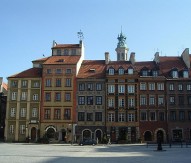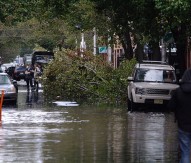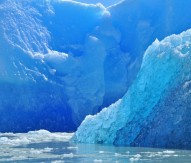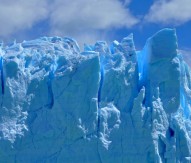
Analysis… Geology for society
Vitor Correia, president of the European Federation of Geologists, discusses the vital role of geology in overcoming the most pressing challenges facing us today and its under-recognition within EU policy making.
Established in 1981, the European Federation of Geologists (EFG) is a not-for-profit organisation which today includes 24 national association members whose overall aim is to represent the profession of geology in Europe, in particular to the European Union and its various bodies. EFG contributes to environmental protection, public safety and the responsible exploitation of natural resources by promoting excellence in the application of geoscience; supporting research and the teaching that underpins it; and raising public awareness of the importance of geoscience to society.
Here, EFG president Vitor Correia speaks to Portal about the vital role of geology in overcoming the most pressing challenges facing us today, its increasing recognition at the European policy level, and the barriers that remain to a better understanding of its importance amongst the public and EU decision makers, as well as his hopes for the Geological Society of London’s ‘Geology for Society’ report.
What role does geology have to play in confronting the great challenges facing Europe today?
Geology is the study of the Earth’s structure and history. It underpins the provision of natural resources to society and industry, delivers a wide range of essential services, and helps us understand how we can live more sustainably on our planet. Industries that are based on geoscientific knowledge are major contributors to Europe’s economic growth and stability, and provide employment to many millions of people on our continent.
The importance of geology to society in the past may be illustrated by various examples, from the long distance trade of raw materials in the Stone Age (tools made with obsidian, jasper and flint are found hundreds of miles from where those stones were quarried) to the extraction of metals from minerals and the consequent leverage of agricultural productivity and social standards in the Iron Age. In modern times geology has also played a key role in many aspects of our life, like the birth of Romanticism, which can be traced back to the shift from the Age of Enlightenment caused by the Lisbon earthquake in 1755, or the birth of the European Union, rooted in the European Coal and Steel Community.
Naturally, in the future, the distribution of geological resources, namely energy and minerals, will remain a key factor in many global political decisions. But we are sure that, in a planet with finite resources and a growing population, geoscientists will often be called to help solve societal concerns, in particular adaptation to climate change (through prevention of major natural disasters like droughts, floods or landslides), the scarcity of soils for agriculture, and the dwindling of clean water sources.
I’d like to highlight that the EFG has set up nine panels of experts dedicated to the following topics, to concretely face the challenges ahead:
- CO2 geological storage;
- Geothermal energy;
- Education;
- Geological heritage;
- Hydrogeology;
- Natural hazards and climate change;
- Resources and reserves – oil and gas;
- Resources and reserves – minerals and their sustainable use; and
- Soil protection.
The EFG’s panels of experts have been established to provide high quality advice and information to the European Commission, the European Parliament and international organisations such as the United Nations. In all the activities of the panels of experts there is the intention of emphasising the role geology plays for society and the benefits of incorporating geological advice into policies.
In addition, the EFG is (or has been) involved in several EU-funded projects addressing the above-mentioned challenges, including:
- INTRAW (fostering international co-operation on raw materials: www.intraw.eu), a three-year EU-funded project in the framework of the Horizon 2020 programme. INTRAW aims to map and develop new co-operation opportunities related to raw materials in Australia, Canada, Japan, South Africa and the United States. The outcome of the project’s mapping and knowledge transfer activities will be used as a baseline to set and launch the EU’s International Observatory for Raw Materials;
- MINATURA2020 (Mineral Deposits of Public Importance: www.minatura.eu), a three-year EU-funded project with the overall objective of developing a concept and methodology for the definition and subsequent protection of ’mineral deposits of public importance’ so as to ensure their best use in the future in order to be included in a harmonised European regulatory/guidance/policy framework. Providing a policy planning framework that comprises the ’sustainability principle’ for mining like for other land uses is the key driving force behind MINATURA2020;
- ¡VAMOS! (Developing Revolutionary Underwater Mining System: www.vamos-project.eu), a new 42-month research and development project launched as part of the Horizon 2020 programme to help provide an opportunity to tap into the wealth of unexploited European mineral resources;
- KINDRA (Knowledge Inventory for hydrogeology research: www.kindraproject.eu), whose overall objective is to take stock of Europe’s contemporary practical and scientific knowledge of hydrogeology research and innovation with the help of an inventory of research results, activities, projects and programmes, and then use the inventory to identify critical research challenges and gaps, with a view to avoiding overlaps; and
- GEOTRAINET (Geo-Education for a sustainable geothermal heating and cooling market: www.geotrainet.eu), a 30-month project co-financed by the European Commission’s ‘Intelligent Energy – Europe’ which aimed to develop the training of professionals involved in ground source heat pump installations. The project ended in February 2011, but members of the consortium decided to capitalise on the results and established GEOTRAINET ASBL as a Belgian not-for-profit association.
Understanding of geology is often missing in policy circles – why is this, and what needs to change?
Geology deals with time periods that are difficult to understand by us, humans. In some cases, geological phenomena develop too slowly to be perceived in a lifetime; in other cases, these phenomena arise too fast, causing catastrophes like volcanic eruptions or earthquakes and tsunamis. That probably explains why we tend to react to geological phenomena instead of taking a proactive approach focused on prevention. In this context, for a politician facing limited resources, it is easier to forget things that develop at a very slow pace, with an uncertain outcome, and to focus instead on problems that require immediate intervention.
Moreover, new technologies are inspiring new challenges; not only do we now have to take into account geological factors but also changes in society. For instance, we are trying to define areas where critical minerals exist and which must be protected for future exploration and exploitation. One of the problems we are facing is that the list of critical minerals we have today is completely different from the list we had 20 years ago. Rare Earth materials, for example, haven’t always had the importance they have today thanks to mobile phones or green energy, and it is difficult to consider these unknowables in advance and plan for them.
On top of this, geosciences are invisible, perceived as very complex and difficult to understand, or viewed as a leisure activity for children (dinosaurs and fossil or mineral collections are seen as a child’s activities). Occasionally, when ‘hot topic’ discussions come to the public (as has recently happened with fracking), newspapers and politicians tend to look closer at geology, but only temporarily.
It is clear that society in general, and policy makers in particular, are not aware of the fundamental contribution of Earth sciences to our daily life. To change this, we need to act on two pillars.
Firstly, education. Geoscientific knowledge should be disseminated in secondary education. Apart from explaining phenomena like earthquakes and plate tectonics, the aim should be to make students aware of the contribution of Earth sciences to our quality of life and the importance of ensuring sustainable approaches to the management of natural resources. This can also have an important collateral impact on reasoning. Quoting US philosopher Robert Frodeman: “Facing the difficulties of modelling the geologic past because of problems of temporal and spatial scale and the singularity and complexity of geologic events, the geologist turns to other types of explanation, such as reasoning by analogy, the method of hypothesis, and eliminative induction.” Frodeman stated that geological reasoning combines logical procedures, some shared with the experimental sciences, whilst others are more typical of the humanities in general and continental philosophy in particular. Naturally, this combination of techniques is not unique to geology, but such a combination is especially characteristic of geological reasoning.
The second pillar is communication. Geoscientists must improve their communication skills and explain to common citizens the complexity of geological phenomena in clear and simple words. The geosciences community is currently undertaking significant efforts to improve communication with the public and policy makers, but we have a long way ahead to simplify (but avoiding oversimplifying) the messages and enhance the communication channels. We trust the launch of the ‘Geology for Society’ report is a step in the right direction.
Economic competitiveness and our ability to meet future challenges will depend on sustaining Europe’s geoscience research base. How would you like to see this achieved?
Usually, policy makers are under considerable strain to act once the problems are out on the table, as is currently the case for EU policies tackling our dependence on critical raw materials or natural gas supply. The decisions taken in these cases are rarely framed by a long term planning approach, although investments in research definitely rely on long term views. This kind of long term investment and planning exists in countries such as the USA and Japan, where natural resources such as soil for agriculture, marine deposits and groundwater (plus, of course, minerals and hydrocarbons) are considered strategic assets. For this reason, the budgets allocated to geoscientific research in the mentioned countries can’t be compared with the budgets of European countries.
However, we must recognise that Horizon 2020 includes raw materials in the list of thematic areas being funded, thus pushing up European research on geosciences. Moreover, the recently created Knowledge and Innovation Community on Raw Materials, congregating more than 100 partners among industry and research institutions, is a step in the proper direction, encouraging research and innovation in the European geosciences community.
Do you think there is call for the EU to target geology more specifically in its research and innovation framework programme?
Definitely. Calls for projects that explicitly mention geology are scarce, and many of our future challenges, such as the management of groundwater bodies (especially if transnational), clean mining or blue growth, are deep-seated in geology or need an important contribution from geosciences. But we realise that the challenges ahead need a multidisciplinary approach, and this is clearly one of the stimuli of the Horizon 2020 programme. We do need to encompass a view on current economic, societal and environmental factors and needs if we aim to lead research and innovation.
What must now be done to establish an effective dialogue between professional geoscientists and the public?
This is an interesting question, because it includes a ‘now’. To start with we must avoid attracting media coverage using subliminal messages about catastrophic events every time we are asked to comment on geological hazards or accidents somewhere in the world. The Icelandic volcanic eruption in 2010 received a lot of media attention and with it a lot of people saying, ‘imagine the consequences of the eruption of the supervolcano that exists in Yellowstone’; that kind of scare-mongering doesn’t do any good.
People tend to want straight answers, but these are hard to provide. At the same time, if the messages conveyed are blurred and the statements vague, this will diminish public trust in geoscientists and impact negatively on their field. Often being unable to provide clear-cut explanations comes across as ignorance on the geologist’s part and does little to inspire confidence in our expertise.
However, we do need to increase our voice in the media, and this must be done using messages beyond earthquakes or volcanic eruptions. Current topics – such as clean water exploitation, green energy or conflict minerals – need to be pushed into the media spotlight via open, clear and fact-based communication. Geoscientists will certainly contribute to this discussion, helping to clarify the confusion caused by speculation.
Naturally, education and a basic knowledge of geoscientific definitions, such as risk and probability, will facilitate this dialogue, and that’s why we advocate the importance of including disciplines of geosciences in the secondary school curriculum. But this won’t have immediate effects, and for now we must bear in mind that our audience isn’t familiar with geological concepts, which demands an additional effort from geoscientists when we’re communicating with the public.
European Minerals Day (www.mineralsday.eu) is one of the best examples of successful (and pedagogical) continued communication on geoscience. This initiative is organised every two years by the Industrial Minerals Association, and it gives the public the opportunity to explore the ‘real’ world of minerals. Over one weekend, quarries, mines and processing plants from the minerals sector all over Europe open their doors to all those interested in discovering more about an industry that affects every aspect of our lives.
The ‘Geology for Society’ report has now been successfully launched at the European Parliament. How optimistic are you that it will have a lasting impact on the incorporation of geology into the EU agenda?
This report was prepared by the Geological Society of London, illustrating the major role geology plays in a multitude of economic areas in Europe. We decided, at EFG, with the support of 15 national associations of geoscientists, to translate this report into a number of different languages – 14 so far. The report was officially launched at the European Parliament on 2 June with the aim of outlining to members of the European Parliament and EU policy makers the importance of geology and qualified professionals to our society in areas such as energy, minerals, water, waste management, construction, land contamination and natural hazards. The session, hosted by MEP Carlos Zorrinho, was attended by members of the EFG’s 24 national associations as well as representatives of the European Commission’s DG Energy, DG Environment, DG Internal Market, Industry, Entrepreneurship and SMEs, and DG Research & Innovation.
The report’s launch marked a very significant step for our community. We are now noticing an increasing interest in geology issues from political actors and policy makers, who are becoming aware that many of the challenges we face in Europe, from unstable industrial supply chains and radioactive disposal to natural gas supply, depend on geology. During the report launch, representatives of the European Commission agreed that the ‘Geology for Society’ report is an extremely valuable document for the Commission, and that the input of geologists (and other science branches) will be essential to tackle the societal and environmental challenges of the 21st Century.
However, many other initiatives will need to be taken to raise the profile of geology. EFG’s national members are working hard towards this aim at national level. In this context, we would like to highlight a recent example from EFG’s Spanish member, the ‘Illustre Colegio Oficial de Geólogos’. In July ICOG made public 21 detailed proposals to be considered by political parties running at the coming legislative elections in Spain (icog.web.e-visado.net). With this step ICOG provided to political parties a framework for a national geological policy to the service of society, and this is a great example of a proactive action to contribute to the political agenda.
How will EFG work to build on the momentum of the ‘Geology for Society’ report moving forwards?
As well as our involvement in the aforementioned EU projects, the EFG will continue pushing to raise the profile of geology in Europe. We consider the professionalism of geoscientists crucial to this. The organisation has therefore created EurGeol, a professional title which recognises and signals to clients, regulators and the public the ability to deliver a high quality of services within the practice of geology. It also means that the titleholder has achieved – and will continue to undertake – suitable academic training and abide by a code of ethics defined by the profession.
To adapt to the current and future challenges within the geopolitical framework of the European Union, it is necessary that geologists achieve, and can demonstrate, a high degree of professional experience to be able to respond to the demands of society in practicing their profession. Thanks to the harmonisation of training and experience underlying the EurGeol certification, the title acts as a passport to professional practice in Europe, thereby encouraging free movement of professionals.
Vitor Correia
President
European Federation of Geologists
This article first appeared in issue 8 of Horizon 2020 Projects: Portal, which is now available here.




